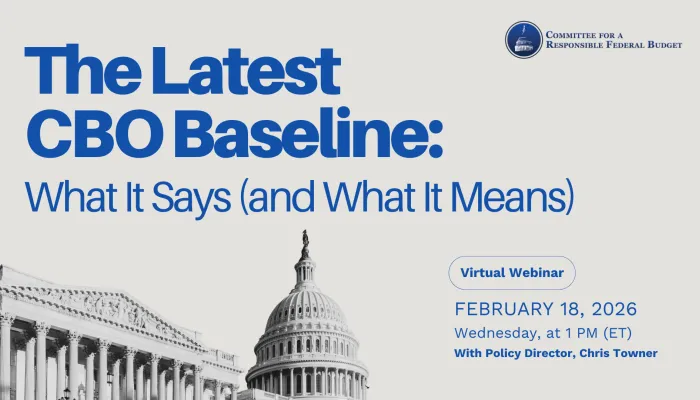Previewing the President's Budget
With less than a week before the President's budget comes out The Wall Street Journal has reported that it will be similar to the September submission to the Super Committee. The submission included a number of familiar tax policies like ending the 2001/2003/2010 tax cuts for people making more than $250,000 and eliminating tax expenditures for oil, gas, and coal companies. In addition, the September submission raised various user fees, reduced farm subsidies, reduced provider payments, and increased Medicare premiums for high-income earners, among other things. The submission also included the American Jobs Act, a stimulus measure that included an extended and expanded payroll tax cut, and increased spending for infrastructure.
Although the budget is expected to look familiar, the State of the Union address and other recent developments also produced a laundry list of policies that would differ from the September submission. Here's what we know:
- New taxes: A big policy in the State of the Union was a fleshing-out of the "Buffett Rule," which states that millionaires' should pay at least a 30 percent effective tax rate. It is now in legislation that has been introduced in both chambers. In addition, President Obama called for a 10 percent minimum tax on multinational companies. No solid estimates are available yet for either of these policies, but we are certainly going to see them in the budget.
- Manufacturing incentives: A lion's share of the address last month was devoted to talking about manufacturing. The Obama Administration has proposed a number of changes for manufacturers through the tax system. They would deny deductions for expenses associated with moving business operations abroad while providing a 20 percent credit for moving operations back to the US (a revenue-neutral change, according to them). They would eliminate the domestic production deduction for oil companies and expand the deduction for certain manufacturers (again, revenue-neutral). They would also introduce a $6 billion tax credit to finance projects in hard-hit communities, and they would extend tax incentives for clean energy manufacturing and the full expensing for equipment, measures which are scheduled to expire at the end of the year. Combined with a loophole-closer that would limit the ability of corporations to avoid taxes through intangible property transfers, these changes would be roughly revenue-neutral, although some of the revenue-raisers have been used in previous budgets.
- Defense: Last month, Defense Secretary Leon Panetta laid out many specifics for how the Administration would make the necessary cuts in defense spending specified in the Budget Control Act. The plan would reduce troop levels and reduce some vehicle acquisitions, among other things. The cuts would reduce defense spending by almost $500 billion over ten years compared to the previous budget.
- Veterans' hiring: After having passed an employer tax credit for hiring unemployed veterans last year, President Obama has proposed expanding on that by creating a "Veterans Jobs Corp." According to the Administration, the new Jobs Corp would employ 20,000 veterans. In addition, the Administration would make $5 billion in additional grant money available through a few existing programs, with that money targeted more towards communities that hire veterans.
- Refinancing initiative: Last week, President Obama laid out a plan to break down barriers for homeowners to refinance their mortgages. Under the plan, there would be fewer criteria for who would qualify for refinancing programs and refinancing would be available to private borrowers as well as for people whose loans are insured by Fannie Mae and Freddie Mac. The Administration put the cost of this proposal in the range of $5 to $10 billion.
- Reorganization: A plan emerged in mid-January to consolidate six commerce- and trade-related agencies into one. The Administration estimated that this move would save $3 billion over ten years due to reduced overhead and fewer needed jobs.
- Federal pay: In contrast with the House Republican plan to freeze federal pay for another year, indications are that the President's budget will recommend a small pay increase of 0.5 percent for 2013. It would be their first increase since 2010. As we noted at the time, this pay increase is about equivalent to the increase in the discretionary spending caps from 2012 to 2013.
- Math and science education: President Obama requested this week $80 million to train 100,000 new teachers for science, technology, engineering, and math (STEM) education. The proposal is small, but it will be part of the Department of Education's budget for FY 2013.
We will see how the numbers shake out when the budget is released next Monday.


